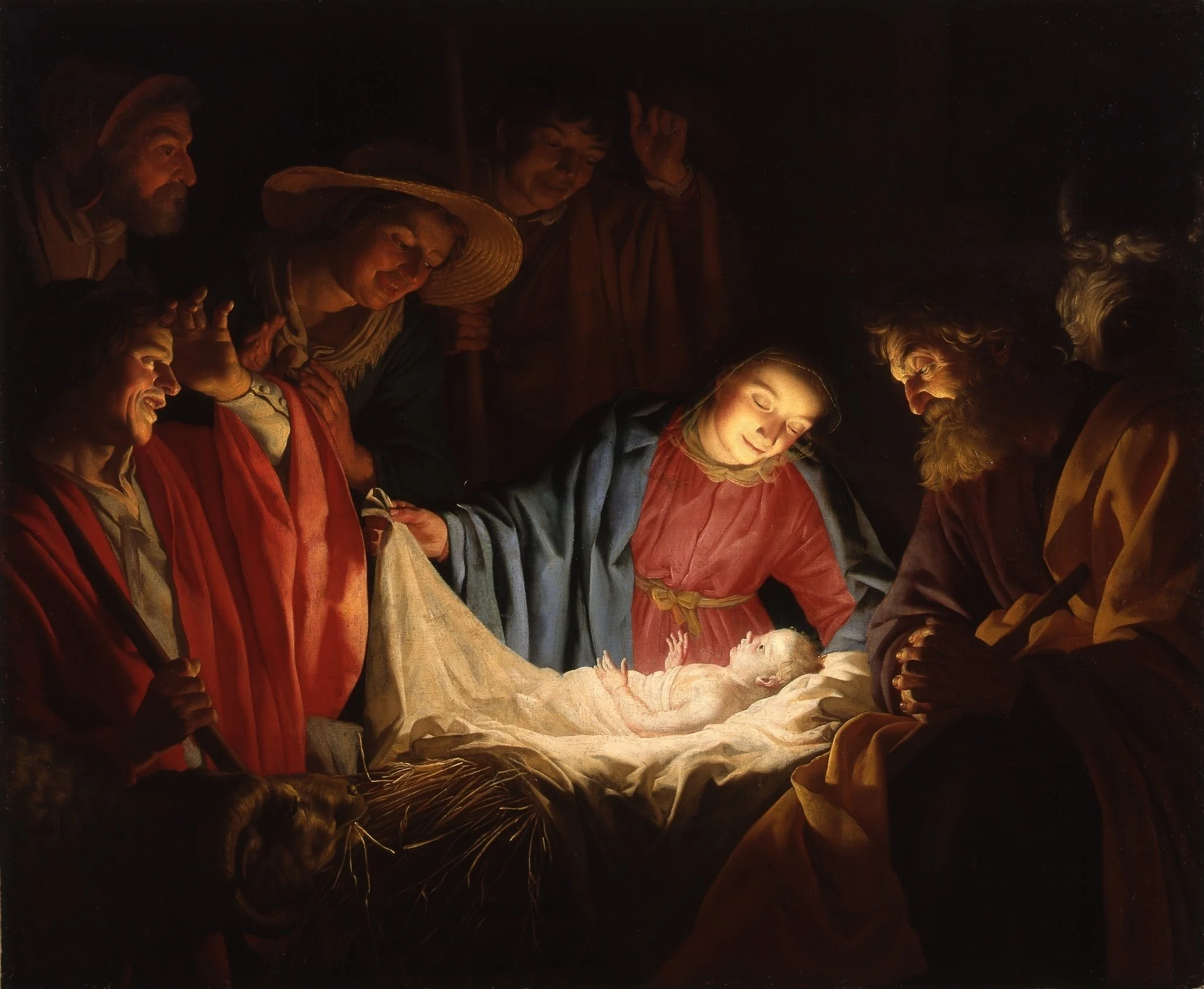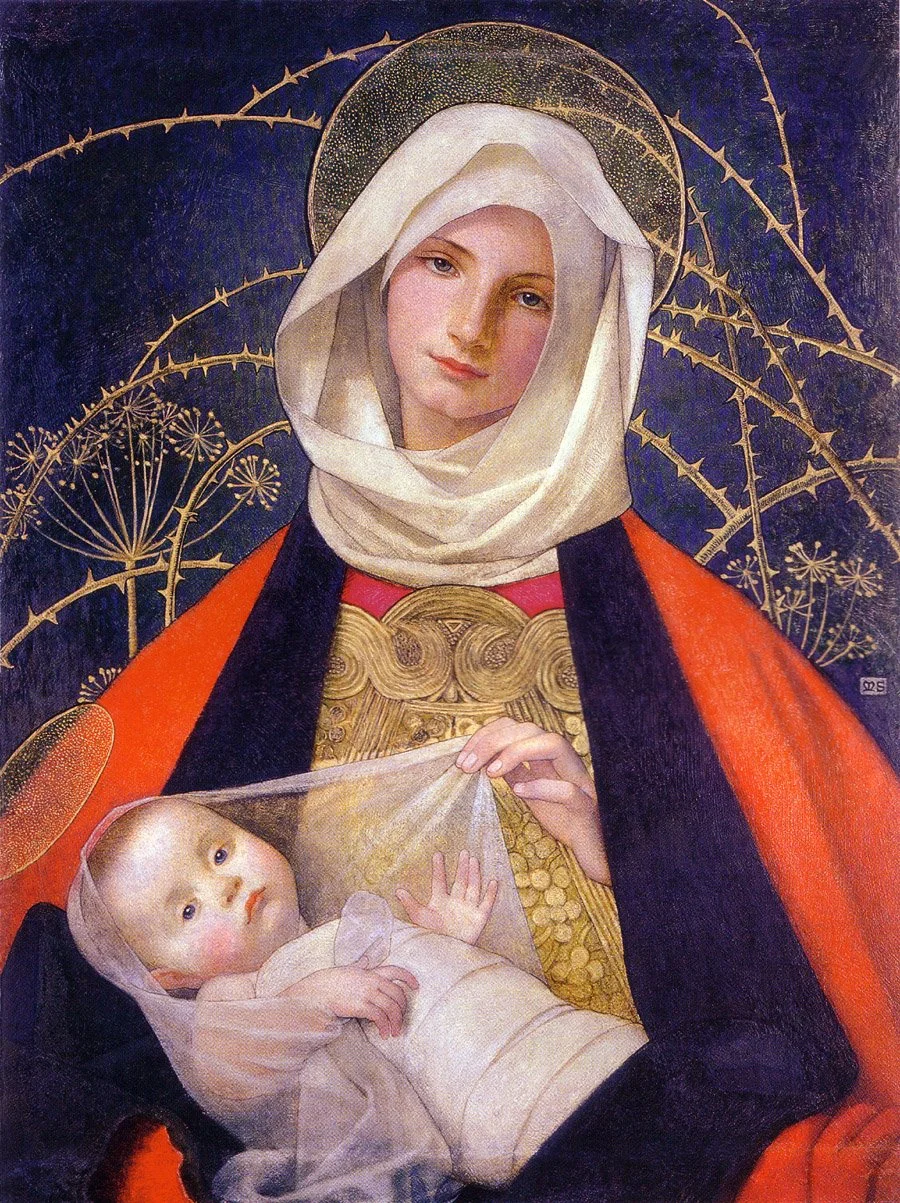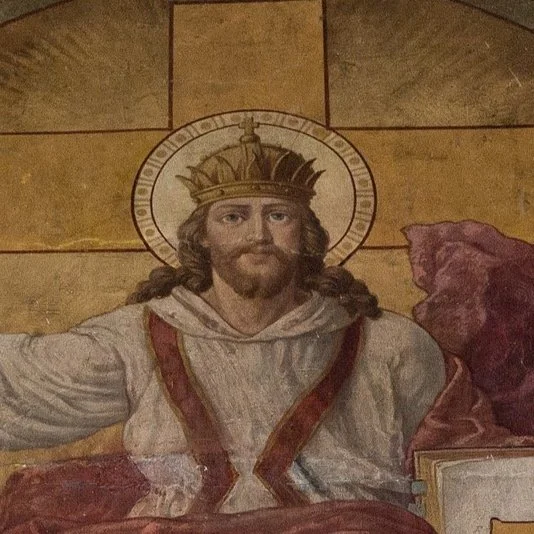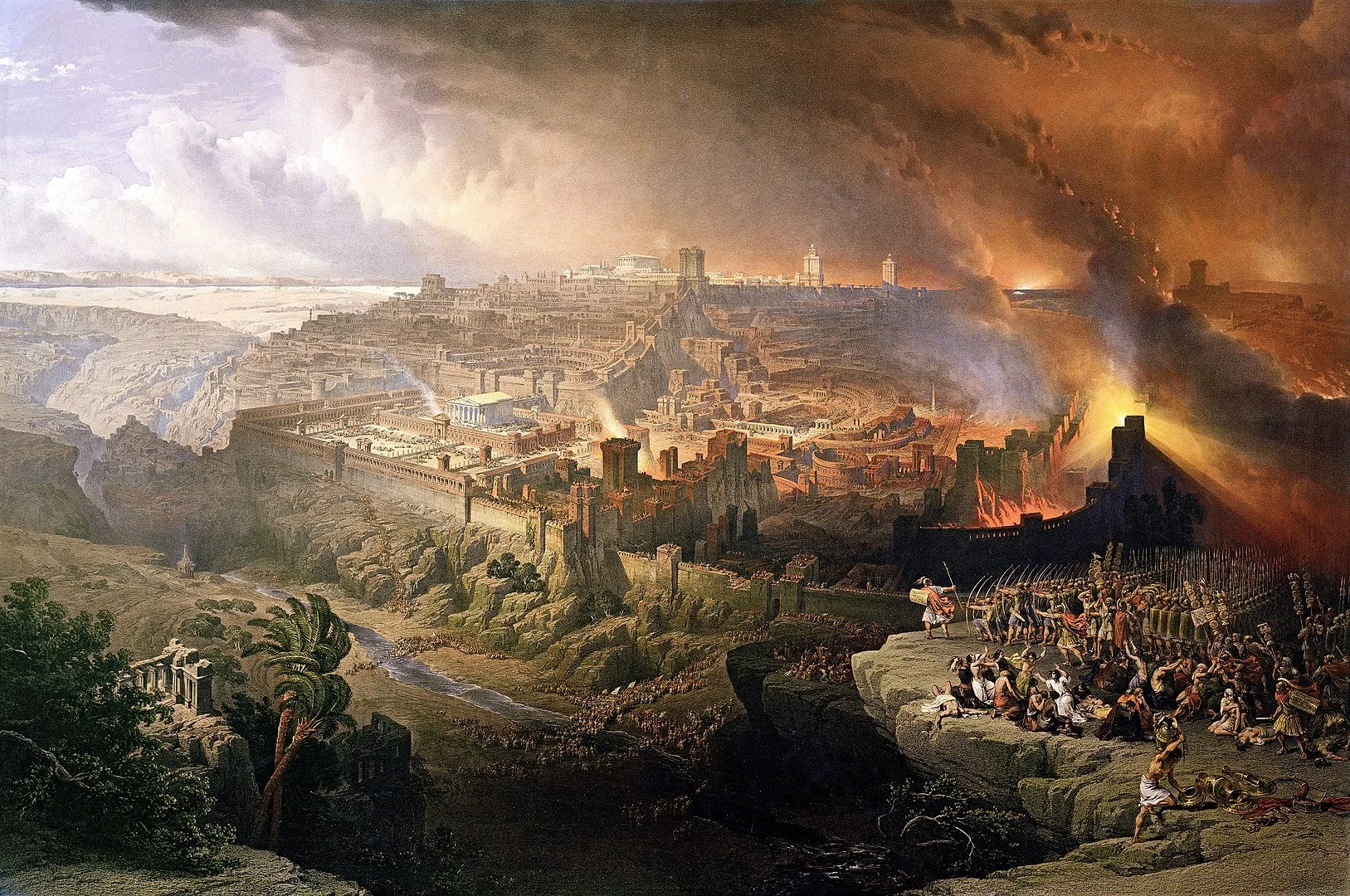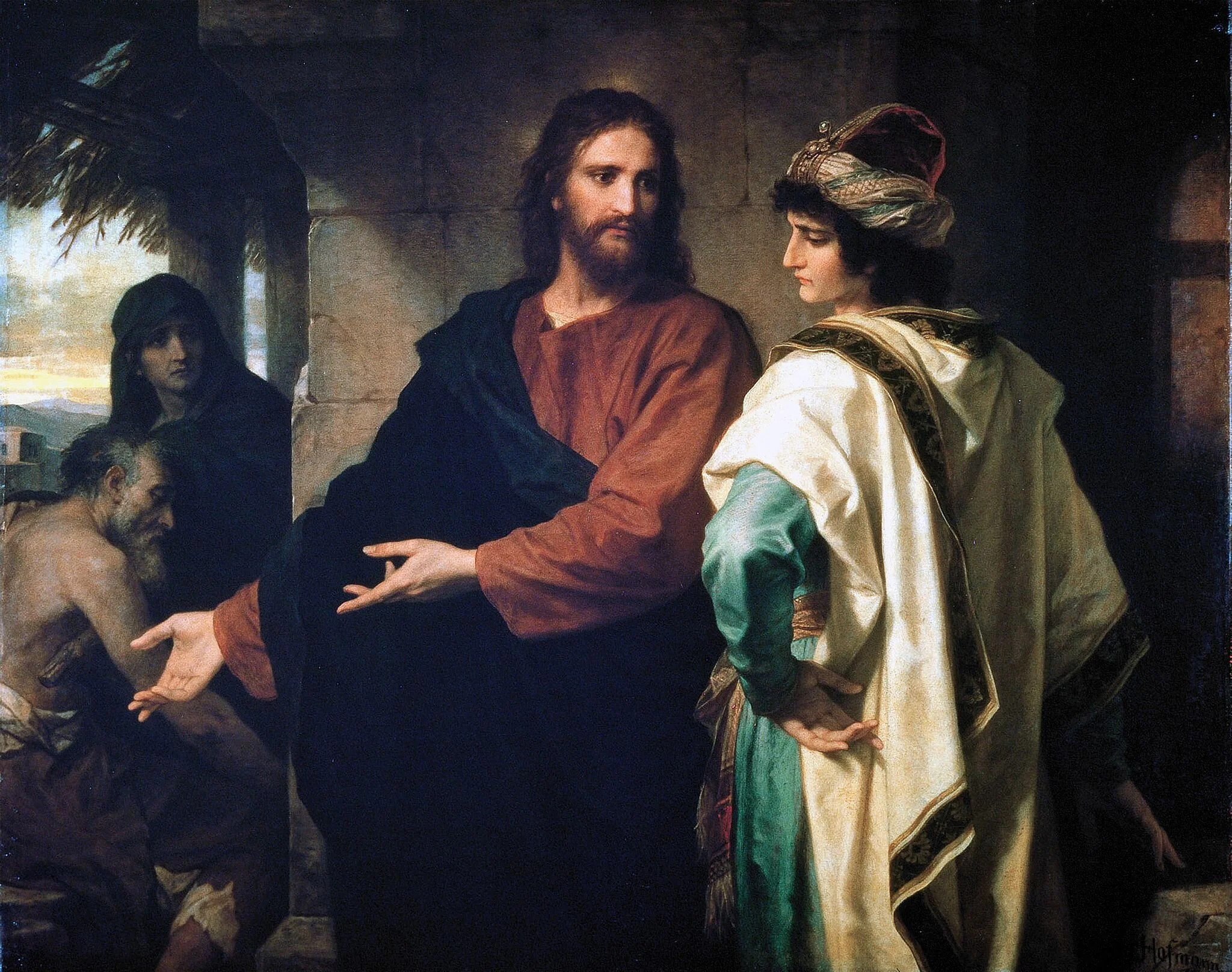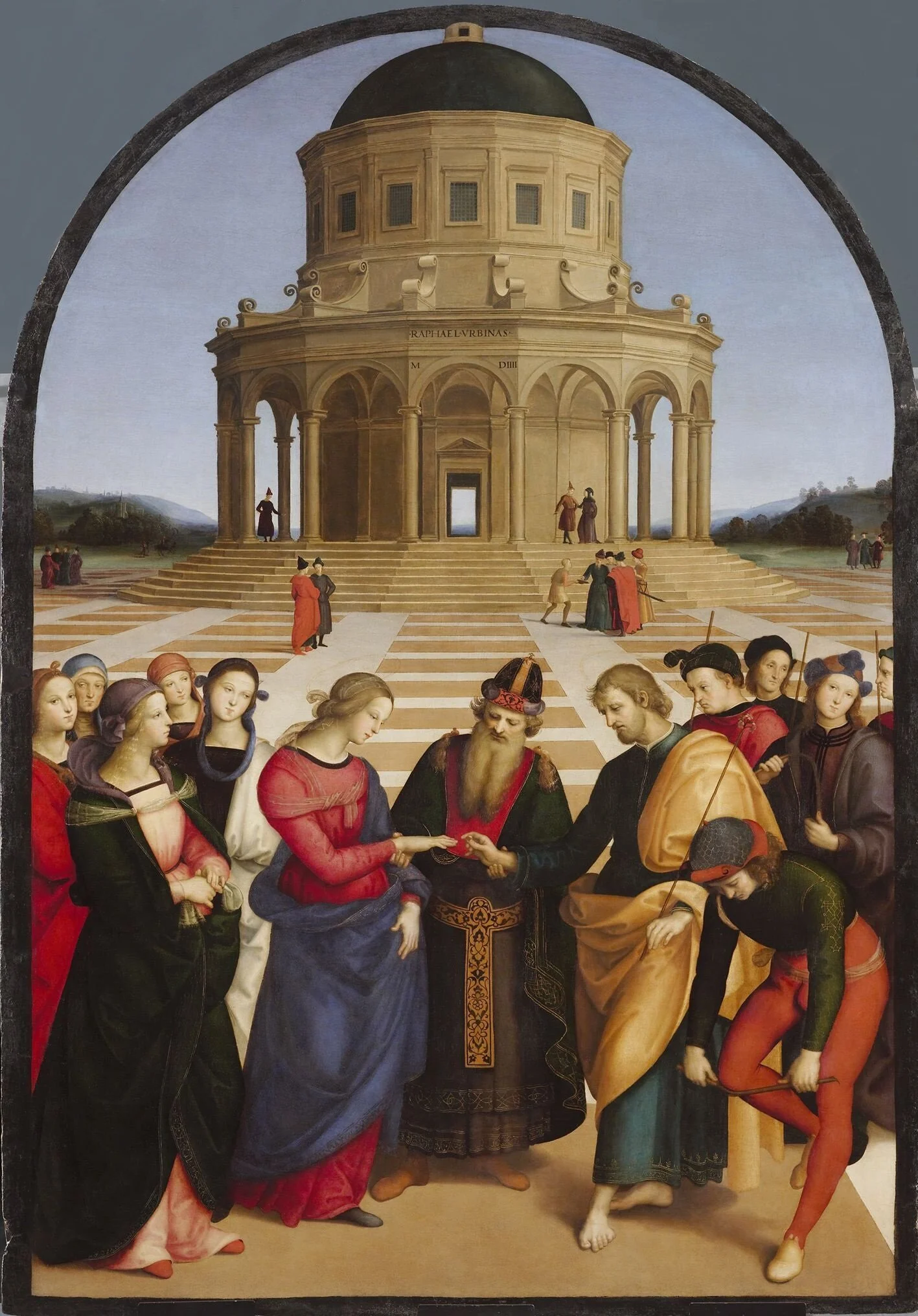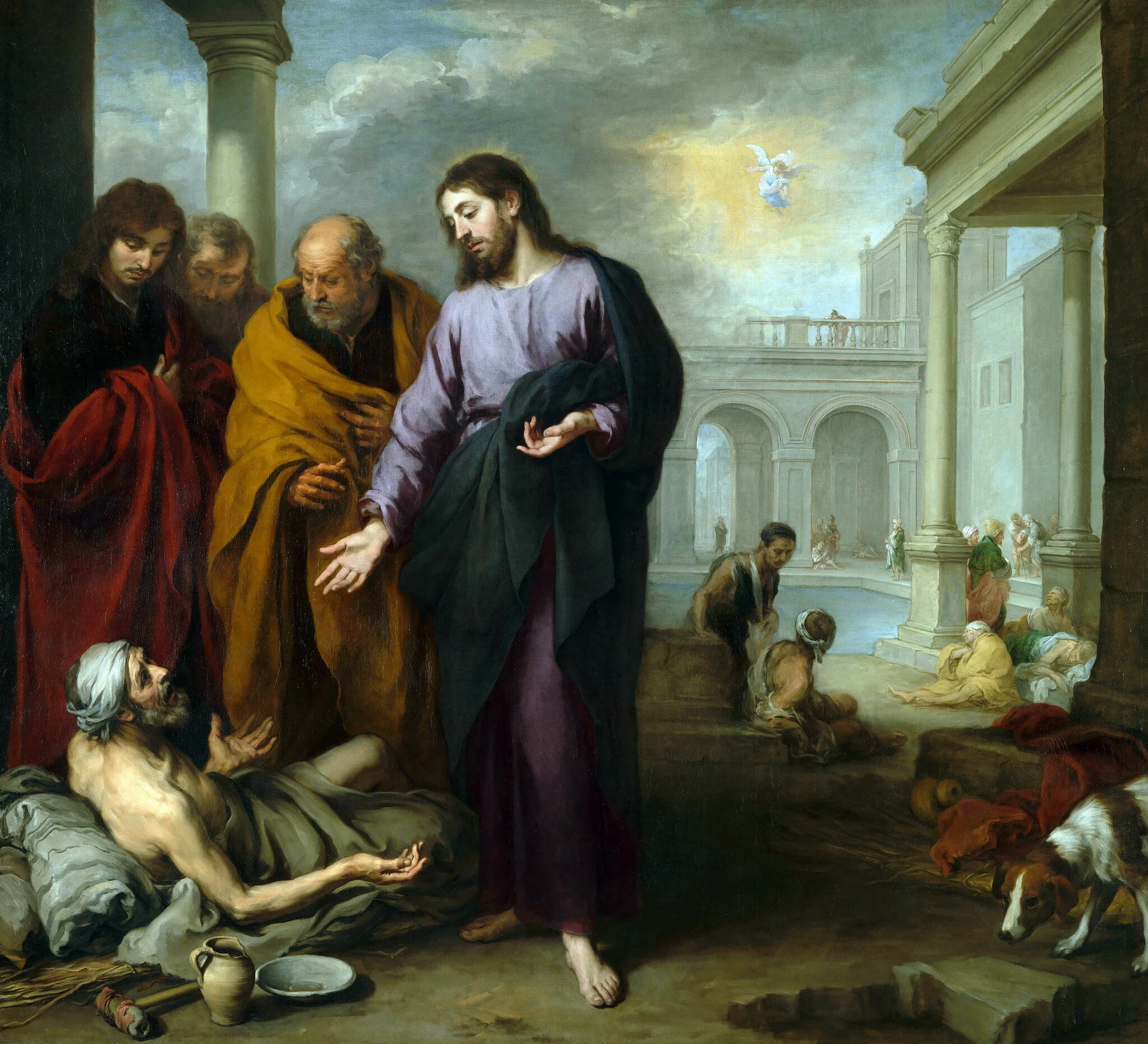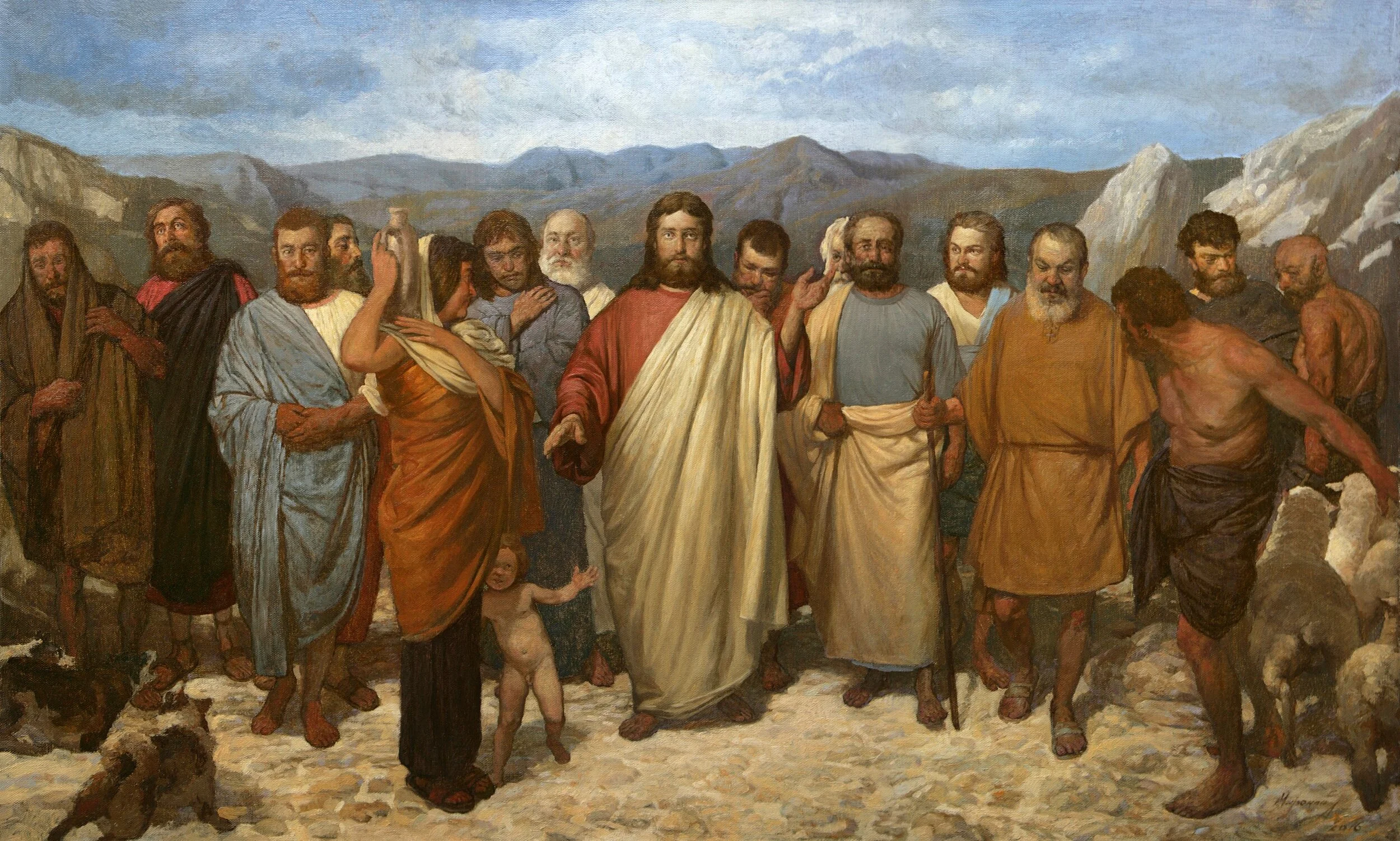Nativity of the Lord (Christmas)
/Nativitas D.N.I.C.
25 December 2021
Midnight Mass Readings
In the Gospel for this solemnity the whole world was in motion. The phrase that “the whole world should be enrolled” is a reference to the entire Roman Empire. The Emperor Caesar Augustus had decreed that a census should take place and so the whole world was in motion as people returned to their ancestral homes for the census. This is how Joseph ends up in the city of David, Bethlehem, because he is a descendant in the royal line of David. He went to register where his ancestral line and territory originate from. Recall that it was in Bethlehem that the youngest of Jesse’s sons, David, was anointed as king (cf. 1 Sam 16). There was motion and commotion as the various processes of the world unfolded on that first Christmas night. The powerful and the elite initiated this movement. But most everyone was unaware that a divine motion was taking place in the midst of it all. That divine motion took flesh by Mary’s cooperation and the power of the Holy Spirit and began nine months prior. That divine motion remained hidden in the sanctuary of her womb. And on this solemnity we celebrate that the movement of God coming to man was made visible by the birth of Jesus from Mary. As the beginning of that movement of God, the conception of the Lord, took place in obscurity and simplicity and privacy. So, with his birth. And it was not to the powerful nor to the elite that the angel shared the message of God moving near and becoming one with us.
Celebrating the birth of our Savior and considering to whom angels announced this movement of God offers us three lessons for living our faith, three lessons for how we ought to be so that we are more open to the Good News of great joy that God is with us, so that we don’t miss the movement of God toward us like so many at that first Christmas. And so, the humility and simplicity taught to us by those to whom the angels of the Lord did announce God’s coming near is a lesson for us. It is a lesson for our present spiritual life so that we live in a way that makes us open and receptive to receive God’s desire to come near to us, open and receptive to receive God Himself. So, let’s look at three examples of those to whom angels appeared.
It was the Archangel Gabriel who first announced to Mary that God desired to come near to mankind and that she had been chosen to be part of this divine movement. The humility and the simplicity of a living faith, of which Mary is an excellent model, is a lesson for us to emulate. That living faith is one that is both active and contemplative. It is one whose prayer is both vocal and silent. Above all, a living faith is one that is not only on the lips but rather seeks to embrace what God speaks and to conform and change one’s life in trust. Mary’s living faith is a model for us to permit God and His ways to have a claim on our lives so that we change ourselves to be conformed to Him.
The Gospel of St. Matthew tells us that an angel of the Lord came to Joseph in a dream to communicate God’s plan that involved Mary and to call upon him to change his mind so that he would not be afraid to take Mary into his home and to be both husband to her and father to her child. The courageous obedience of St. Joseph is a model and a lesson for us to emulate. The silence from Scripture on St. Joseph does not permit us to know much about him. However, what we do know provides for us this lesson of courageous obedience. Listening to the message of the angel and following what God revealed to him was not some passive thing. His cooperation with God’s plan required a type of courage to steel his nerves, to change his plans, to submit to God in trust and to endure whatever would come.
Finally, in the Gospel of this Holy Mass we hear that soon after the birth of the Savior an angel of the Lord appeared to shepherds keeping the night watch in the fields near his birth. The lesson we can learn from the angel’s appearance to the shepherds requires a bit more analysis. It is perhaps not as obvious as the need for an angel to appear to Mary and to Joseph in order to gain their free cooperation with God’s movement to mankind. Bethlehem is in the region of Jerusalem, only about 6 miles or so to the south of Jerusalem. It might be hard for us to imagine but the service at the Jerusalem Temple and the sacrifices that took place there were a major driving part of the economy of the entire local area. In particular, for the sacrifice of lambs thousands of sheep would be needed. Perhaps most unimaginable to us, hundreds of thousands would be needed at particularly high holy days when pilgrims from far and wide made the journey to Jerusalem. It is thus entirely likely that the flocks in the region surrounding Bethlehem, only about six miles from the holy city, were flocks that provided, at least in part, for the massive sacrificial system of the Jerusalem Temple. Following the birth of Jesus, the angel’s appearance next to the lowly shepherds – to these shepherds in particular – highlights a lesson for us about sacrifice and worship. Already at his birth, the specter of sacrifice is present. The Bethlehem shepherds, guardians of the flocks destined for sacrifices at the Temple, come with haste to see what the angel proclaims, the sign for them of an Infant wrapped in swaddling clothes. We don’t get any details later in the Gospel about just what is was like for several shepherds to move their entire flocks and to arrive at the nativity. But whatever motion and commotion there must have been, these guardians of the sacrifices for the Temple, come to see the newborn Lamb of God, the one whose very self is the perfect Temple, the one who will be sacrificed for the salvation of mankind. And thus, a lesson for us is the primacy of sacrifice in our embrace of God’s movement to be with us. Most especially, our embrace of the sacrifice that is made present to us here at the Holy Mass, the sacrifice of the Cross that saves us. But not only that. The lesson for us is that to respond to God’s movement to us we must be a people of sacrifice. Our sacrifices to change sinful habits and to rid them from our lives helps us welcome and adore Christ. We make sacrifice to put God first in all things, requiring that we keep proper priorities and refuse to make others things our gods. Living in such a way that proclaims that I actually do believe that God is near and with me requires sacrifice. To see the events of life, especially those that challenge me or disturb my faith, as participating in God’s life and His work of salvation requires that I sacrifice the voices of doubt and beg an increase of trust. And of course, to be like those guardian shepherds of the sacrifice, to gather here in accord with the Lord’s own command that we do this in his memory, to be present to worship God at Holy Mass… this requires that we sacrifice other pursuits to embrace God’s saving presence and action among us. It is in keeping our eyes fixed, like the shepherds, on the Lamb of God, that our individual sacrifices make sense and are placed together with the one perfect pleasing offering made to God the Father by the Son Jesus Christ.
Developing a living faith, a courageous obedience, and a focus on the primacy of sacrifice helps us receive the Good News of great joy that our God and Savior has come near. These lessons help us embrace the movement of God to us so that we might move to deeper life with Him. May the observance of this solemnity help us, through the darkness of our stumbling faith, to see with renewed vision the glory of the Lord shining around us. May this solemnity help us to embrace the movement of God to us so that we join the multitude of the heavenly host in proclaiming: “Glory to God in the highest, and on earth peace to those on whom his favor rests!”

